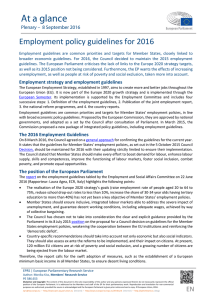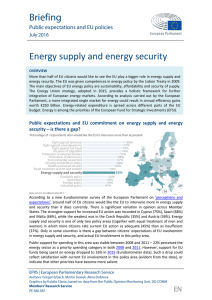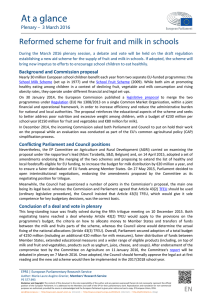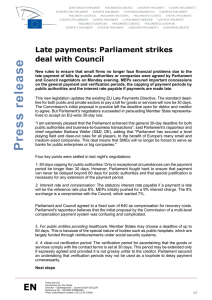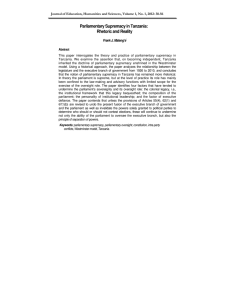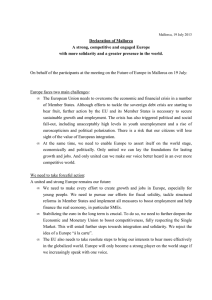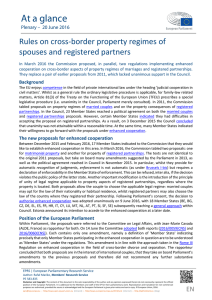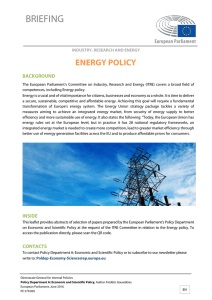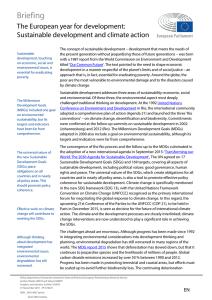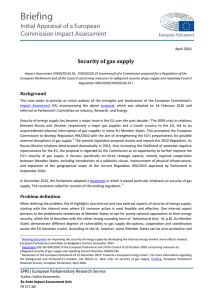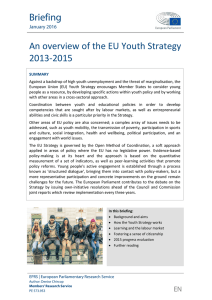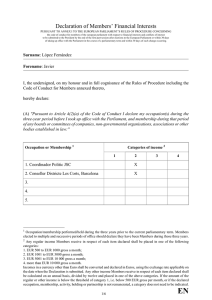At a glance - European Parliament
Anuncio
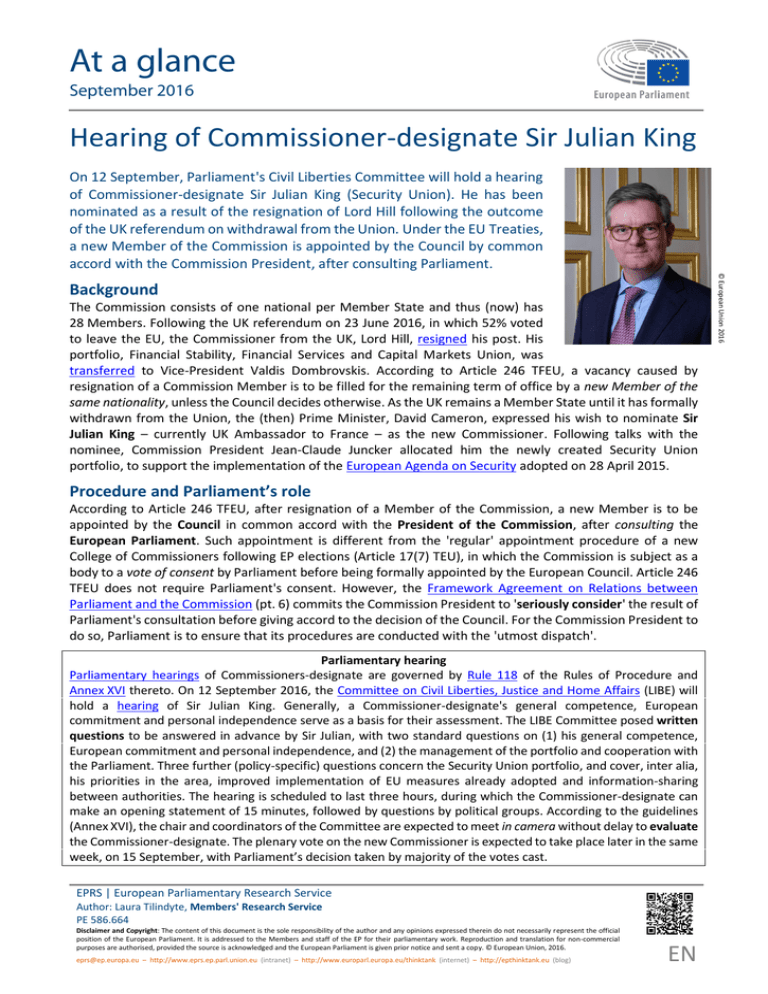
At a glance September 2016 Hearing of Commissioner-designate Sir Julian King On 12 September, Parliament's Civil Liberties Committee will hold a hearing of Commissioner-designate Sir Julian King (Security Union). He has been nominated as a result of the resignation of Lord Hill following the outcome of the UK referendum on withdrawal from the Union. Under the EU Treaties, a new Member of the Commission is appointed by the Council by common accord with the Commission President, after consulting Parliament. The Commission consists of one national per Member State and thus (now) has 28 Members. Following the UK referendum on 23 June 2016, in which 52% voted to leave the EU, the Commissioner from the UK, Lord Hill, resigned his post. His portfolio, Financial Stability, Financial Services and Capital Markets Union, was transferred to Vice-President Valdis Dombrovskis. According to Article 246 TFEU, a vacancy caused by resignation of a Commission Member is to be filled for the remaining term of office by a new Member of the same nationality, unless the Council decides otherwise. As the UK remains a Member State until it has formally withdrawn from the Union, the (then) Prime Minister, David Cameron, expressed his wish to nominate Sir Julian King – currently UK Ambassador to France – as the new Commissioner. Following talks with the nominee, Commission President Jean-Claude Juncker allocated him the newly created Security Union portfolio, to support the implementation of the European Agenda on Security adopted on 28 April 2015. Procedure and Parliament’s role According to Article 246 TFEU, after resignation of a Member of the Commission, a new Member is to be appointed by the Council in common accord with the President of the Commission, after consulting the European Parliament. Such appointment is different from the 'regular' appointment procedure of a new College of Commissioners following EP elections (Article 17(7) TEU), in which the Commission is subject as a body to a vote of consent by Parliament before being formally appointed by the European Council. Article 246 TFEU does not require Parliament's consent. However, the Framework Agreement on Relations between Parliament and the Commission (pt. 6) commits the Commission President to 'seriously consider' the result of Parliament's consultation before giving accord to the decision of the Council. For the Commission President to do so, Parliament is to ensure that its procedures are conducted with the 'utmost dispatch'. Parliamentary hearing Parliamentary hearings of Commissioners-designate are governed by Rule 118 of the Rules of Procedure and Annex XVI thereto. On 12 September 2016, the Committee on Civil Liberties, Justice and Home Affairs (LIBE) will hold a hearing of Sir Julian King. Generally, a Commissioner-designate's general competence, European commitment and personal independence serve as a basis for their assessment. The LIBE Committee posed written questions to be answered in advance by Sir Julian, with two standard questions on (1) his general competence, European commitment and personal independence, and (2) the management of the portfolio and cooperation with the Parliament. Three further (policy-specific) questions concern the Security Union portfolio, and cover, inter alia, his priorities in the area, improved implementation of EU measures already adopted and information-sharing between authorities. The hearing is scheduled to last three hours, during which the Commissioner-designate can make an opening statement of 15 minutes, followed by questions by political groups. According to the guidelines (Annex XVI), the chair and coordinators of the Committee are expected to meet in camera without delay to evaluate the Commissioner-designate. The plenary vote on the new Commissioner is expected to take place later in the same week, on 15 September, with Parliament’s decision taken by majority of the votes cast. EPRS | European Parliamentary Research Service Author: Laura Tilindyte, Members' Research Service PE 586.664 Disclaimer and Copyright: The content of this document is the sole responsibility of the author and any opinions expressed therein do not necessarily represent the official position of the European Parliament. It is addressed to the Members and staff of the EP for their parliamentary work. Reproduction and translation for non-commercial purposes are authorised, provided the source is acknowledged and the European Parliament is given prior notice and sent a copy. © European Union, 2016. eprs@ep.europa.eu – http://www.eprs.ep.parl.union.eu (intranet) – http://www.europarl.europa.eu/thinktank (internet) – http://epthinktank.eu (blog) EN © European Union 2016 Background
